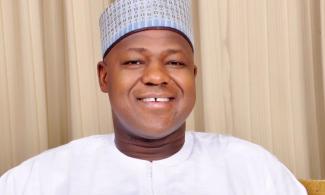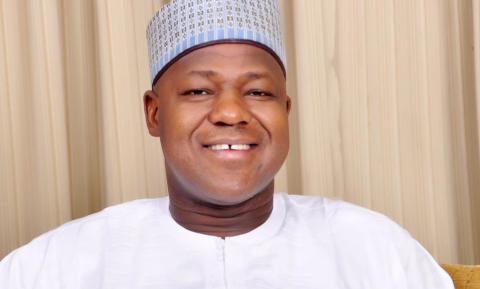
A member of the House of Representatives criticised over a controversial pro-Sharia bill which he sponsored, has said he was advised by the speaker, Yakubu Dogara, to speed the bill quietly through a second reading to avoid controversy.
In an interview with PREMIUM TIMES Thursday, Abdullahi Salame, representing Gwadabawa/Illela federal constituency, Sokoto State, said Mr. Dogara recognised that the bill could draw public outrage, and urged him not to “make noise” about the bill.
“I wrote the bill. I presented it. It was in the Gazette. It went through first reading and second reading. So, the Speaker, in his wisdom — you know there are some issues that is not necessary to publicly discuss them or deliberate on them to avoid problems– asked me not to make noise about it,” Mr. Salame told PREMIUM TIMES.
Mr. Salame was widely criticised on social media on Wednesday after it became clear that his bill, which seeks to amend the Constitution to give more powers to the Sharia Court of Appeal, had quietly passed the second reading last week Thursday.
Mr. Salame said the Speaker directed him to quietly work the bill through second reading for it to be sent to the Constitution Amendment Committee for consideration.
“The Speaker considers this bill one of the bills that do not require much argument. Because many people could misunderstand it. At the committee, they will see the nitty-gritty of the bill. So it was the Speaker that did not allow us to debate publicly on it and he advised that we refer it to the constitutional amendment committee,” Mr. Salame said.

The speaker, Mr. Dogara, is a Christian.
When reached for comment, Mr. Dogara’s media office did not confirm nor deny Mr. Salame’s claims, pointing instead to a statement issued by a spokesman for the House about the nature of the bill and how the legislative body handled its presentation.
Read the full response below:
The Bill came up on the floor and was automatically referred to the ad-hoc committee on constitution review.
There was no debate on it either for or against because the House is a democratic representatives chamber of the Nigerian people
Even if five people only have an issue with any section of the Constitution, the House will give it a listening ear.
The ad-hoc committee on Constitution review has one member per state and women and other representation.
The precedence is that it is in this committee that these kinds of matters are thrashed out.
Any bill that has potentials to divide the country into religious or tribal lines or to reopen settled constitutional issues will most likely fail in the committee.
It should be noted that constitutional review bills are special bills that undergo many stages, unlike an ordinary bill.
These include committee stage, the plenary stage for voting by 2/3rd of the House, 2/3rd of all the state Houses of Assembly before it comes back again to the National Assembly for voting again and finally it must receive presidential assent.
We are still at a very early stage in the process and Nigerians should not worry about bills of this nature as the House has shown over the years to be the protector of Nigerians’ national unity and interest.
Signed:
Hon. Jonathan Gaza Gbefwi
Deputy Chairman
House Committee on Media and Publicity.